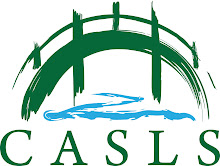Here are some activity ideas that teachers of different listservs have shared lately:
When they get enough case endings under their belts, have them play Clue in Russian. "I think that ___ killed _____ in the ____ by means of a ______," is a way to drill nominative, past tense gender agreement, animate accusative, prepositional and instrumental over and over and over again. And it's fun!
I have created my own Clue board by repurposing a typical Russian apartment layout plan and creating playing pieces with pictures of famous Russians on them.
Saunders, E. Re: [SEELANGS] Activities for high school class. SEELANGS listserv (SEELANGS@LISTSERV.UA.EDU, 29 Nov 2012).
Ms. Saunders offer the following fine-tuning advice:
I love the game because it is essentially drill, but because it is an engrossing logic game, students forget that they are drilling case endings. And if you play a modified version, you get to practice famous Russian names as well as Russian apartment terminology. A couple of fine tuning points I should mention:
1) I leave out dice rolling in my version of the game. I just have players move from room to room on each turn. Saves time in the game and generally works out better than trying to draw a grid pattern over a blown up apartment layout.
2) I've also created my own weapons -- choosing items that are easier to define and decline in Russian (so my version doesn't include a lead pipe, but strangely does include a гаечный ключь).
3) With a modified version, you also need to create your own note sheets where you make down who is guilty and who isn't.
Another activity I do daily with my online Russian class (2nd year) is to look at an online Russian calendar that has all of the obscure "holidays" on it: http://www.skylexus.ru/forum2/index.php?action=calendar
I use the website mostly to practice asking about which day of the week it is (eventually we'll be asking about the date and year), and then to practice how to say "on what day" I use the holidays listed on the calendar to ask "в какой день был/будет праздник…" so mostly they have to scan the page to find the "holiday" that looks like what they just heard me say (even if they don't understand all of the words) and then answer: в понедельник or в субботу. I try to provide them with a crib sheet of translations for the weirder words. It allows you to practice the same phrases over and over again on a regular basis, but it changes the information according to the time of year. And they find it sort of weird, but seem to be getting better at it.
---
My favorite activity is to collect random personal objects and put them on a table. I ask kids - es tu llavero? You can easily get to mio, tuyo etc. especially if someone claims something that's not theirs. I usually have at least one jokester. I’ll be silly with the activity.
Gomez, E. Re: [FLTEACH] Spanish Possessive Adjective Activity Practice Ideas. FLTEACH listserv (FLTEACH@LISTSERV.BUFFALO.EDU, 29 Nov 2012).
---
You can also play bingo, with you telling sentences in TL and students marking the verbs they hear. This is a good game to develop the "it sounds right" ability. Another useful game is battleship; you make a grid with pronouns and names across the top and verbs down the side. Students tell conjugated verbs to point to places on the grid. I have learned that with this game less is more. When you put too many verbs students don't enjoy it as much because their chances of winning are so limited.
Marcin, M. Re: [FLTEACH] Verb Games. FLTEACH listserv (FLTEACH@LISTSERV.BUFFALO.EDU, 18 Nov 2012).
January 4, 2013
Subscribe to:
Post Comments (Atom)





No comments:
Post a Comment
Note: Only a member of this blog may post a comment.